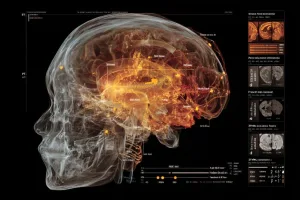Understanding Chronic Pain: When Your Body’s Alarm System Fails
Pain is a crucial signal, alerting us to potential harm and prompting us to take action. However, what happens when this essential alarm system malfunctions, leading to persistent, chronic pain? Let’s delve into the complexities of chronic pain and explore why it occurs.
The Purpose of Pain
Acute pain serves as a protective mechanism. When you touch a hot stove, the immediate sharp pain warns you to withdraw your hand, preventing further injury. This type of pain is temporary and subsides once the injury heals.
When Pain Becomes Chronic
Chronic pain, on the other hand, is different. It persists long after the initial injury has healed or when there is no apparent injury at all. It can last for months or even years, significantly impacting a person’s quality of life.
Why Does This Happen?
- Nerve Damage: In some cases, chronic pain arises from nerve damage. The nerves themselves become hypersensitive and continue to send pain signals to the brain, even in the absence of a clear threat.
- Central Sensitization: This refers to a state where the central nervous system (brain and spinal cord) becomes overly sensitive to pain signals. Even mild stimuli can trigger intense pain.
- Malfunctioning Pain System: When pain becomes chronic, the body’s pain modulation system—designed to regulate and dampen pain signals—appears to malfunction. This can lead to an amplification of pain and a reduced ability to cope with it.
The Impact of Chronic Pain
Chronic pain can have wide-ranging effects, impacting not only physical health but also mental and emotional well-being. It can lead to:
- Depression and anxiety
- Sleep disturbances
- Fatigue
- Difficulty concentrating
- Reduced mobility
- Social isolation
Seeking Help for Chronic Pain
If you are experiencing chronic pain, it’s essential to seek professional help. A healthcare provider can assess your condition, identify potential underlying causes, and recommend appropriate treatment options. These options may include:
- Medications
- Physical therapy
- Nerve blocks
- Cognitive-behavioral therapy (CBT)
- Lifestyle modifications
Final Overview
Chronic pain is a complex condition that arises when the body’s pain signaling system malfunctions. Understanding the underlying mechanisms of chronic pain is crucial for developing effective treatment strategies and improving the lives of those affected. If you are struggling with persistent pain, remember that help is available, and it’s important to seek guidance from a healthcare professional.




+ There are no comments
Add yours